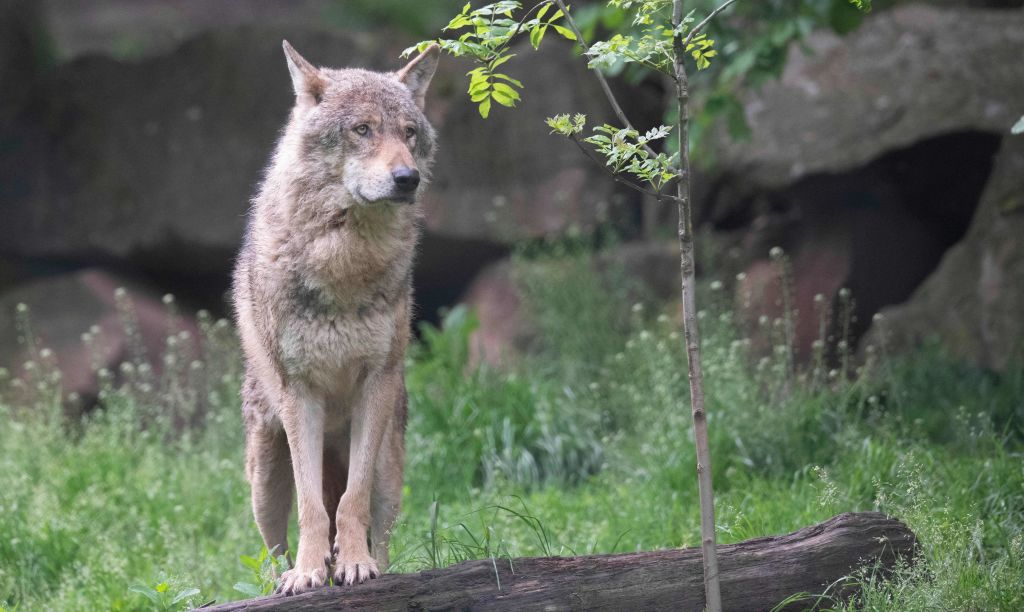Summary of Wolves Can Recognize Human Voices Like Dogs: Study Shows How Wolves Respond Differently To Familiar and Unfamiliar Humans:
A new study has found that wolves, like dogs, can recognize and react to human voices. The study tested how wolves responded to familiar and unfamiliar human voices in different contexts. The researchers found that wolves could distinguish between different human voices, such as familiar positive and unfamiliar negative, and had different reactions. The study suggests that wolves have a similar ability to dogs to recognize and react to human voices based on familiarity and emotional tone. This has implications for our understanding of the evolutionary history of dogs and the relationship between humans and canines. It also highlights the importance of considering human voice recognition as a factor in wolf behavior and conservation efforts. The study recommends using positive voices and words to foster trust and cooperation when interacting with wolves.
Wolves Can Recognize Human Voices Like Dogs: Study Shows How Wolves Respond Differently To Familiar and Unfamiliar Humans
Have you ever wondered if wolves, dogs’ wild ancestors, possess the same ability as their domesticated counterparts to recognize and react to human voices? In an intriguing study published in Animal Cognition journal, researchers from the University of Lincoln, the University of Copenhagen, and the University of Veterinary Medicine Vienna shed light on this question. The study explored how wolves respond to the voices of familiar and unfamiliar humans in different contexts, providing fascinating insights into these majestic creatures’ evolutionary history and behavior.
1. Wolves and their Encounter with Human Voices:
As social animals, wolves use vocalizations, such as howls, barks, growls, whines, and yips, to communicate with each other. These vocalizations convey critical information about their location, identity, mood, intentions, and needs. In their natural environment, wolves often encounter human voices from hunters, farmers, tourists, researchers, or conservationists.
2. The Experiment:
To examine how wolves react to human voices, the researchers conducted an experiment involving 24 gray wolves from zoos and wildlife parks in Spain. The wolves were exposed to recordings of human voices played through speakers near their enclosures. These recordings comprised familiar positive, familiar negative, unfamiliar positive, and unfamiliar negative voices.
3. Wolves’ Response to Human Voices:
The study’s results revealed distinct patterns in how wolves recognized and reacted to the different types of human voices. Wolves exhibited more frequent visits and longer durations near the speakers when they heard familiar positive voices, indicating a positive response to voices associated with keepers who interacted with them regularly in a friendly manner. Additionally, wolves displayed positive behaviors such as wagging tails, licking lips, and approaching the speakers in response to familiar positive voices.
4. Differentiating Human Voices:
The study also found that wolves distinguished between positive and negative tones and words. When they heard familiar negative voices, they exhibited more negative behaviors, including growling, snarling, or avoiding the speaker. In contrast, unfamiliar positive and negative voices evoked mixed responses, with wolves showing less frequent visits and shorter durations near the speakers.
5. Implications for Evolution and Conservation:
The study’s findings have significant implications for the evolutionary history of canine domestication and the conservation status of wolves. The ability of wolves to recognize human voices suggests that dogs may have inherited this trait from their wolf ancestors rather than acquiring it through artificial selection during domestication. It implies that wolves possessed social cognition and communication skills that enabled them to interact with humans even before the dog-human relationship developed.
6. Human Voice Recognition and Wolf Behavior:
The study emphasizes the importance of considering human voice recognition as a factor influencing wolf behavior and ecology in areas where wolves coexist or conflict with humans. Wolves’ associations with positive or negative outcomes from human voices can impact their attitudes and actions toward humans. They can even shape human perceptions and responses to wolf presence and conservation efforts.
Conclusion:
The ability of wolves to recognize and respond to human voices adds another intriguing layer to our understanding of their behavior and the unique bond between humans and canines. The study’s findings suggest that wolves possess similar capacities to dogs in distinguishing human voices based on familiarity and emotional valence. By recognizing the impact of human voice recognition on wolf behavior, we can take steps to foster positive interactions and promote coexistence between humans and these incredible creatures.
Remember, next time you encounter a wolf, use positive voices and words to foster trust and cooperation, and avoid negative voices and words to prevent fear and aggression.
So, the next time you listen to your dog’s howl, remember that their wild ancestors also possess remarkable abilities to recognize and react to human voices. This study deepens our appreciation for wolves and highlights the intricate connections between humans and the animal kingdom.


